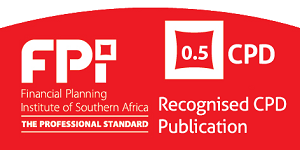The Interview Process
Publish date: 15 October 2018
Issue Number: 43
Diary: CompliNEWS
Category: General
Last week’s article discussed the importance of following a well-structured and planned recruitment process in order to select the right employees for your organisation. An important part of this process is to interview prospective candidates.
The objective of an interview process is to find out three things about applicants:
- Does the person have the ability to do the job?
- Will the person be motivated to be successful?
- Will there be a good match between the person and the business?
However, there are concerns around the validity and reliability of the interview process.
Step five of the recruitment process involved conducting interviews with the most promising candidates selected from the CVs you have received. Conducting interviews can be costly, especially the amount of time taken, therefore it is important to ensure that the interviews are conducted in the most efficient and effective manner possible. If the interview process is conducted well, you should have a thorough assessment of the qualifications, skill set, experience, personality as well as an indication of their fit with your business culture.
Consistency is the key to making interviews more reliable and valid. This means that preparation before the interview process begins is crucial. An interview team (two or more people) should be selected and prepared to hold the interviews. An interview team is preferable over a single interviewer as it provides different perspectives, eliminates biases and includes key stakeholders in the final decision. The team should be a diverse group of employees including managers, colleagues and if applicable, a person from the People Management Department. The interview team should prepare for the individual interviews by establishing ‘talking points’ relating to each candidate’s CV.
The interview questions should be open-ended, with the questions allowing each candidate to display their own knowledge, skills and experience. The interview should start with a few easy-to-answer questions to ensure the candidate feels relaxed. Examples of these questions are ‘How are you?’, ‘Did you manage to find the building easily?’ This will make the interview feel more like a conversation for the candidate and gives them a chance to gather their thoughts. After the candidate is feeling more relaxed, questions should move on to whether the candidate has the qualifications, skills and experience needed. Thereafter, the questions should move on to establishing whether the candidate has the desirable behaviour traits and characteristics required. Questions asked can be related to past behaviour of the candidate, and whether they displayed the necessary behaviour traits and characteristics in different circumstances. For example, ask behavioural questions such as ‘Describe a recent example in which you dealt with a difficult client’ rather than ‘How would you deal with a difficult client?’. Ideally the candidate should think about how they personally would respond in these circumstances rather than giving canned responses.
During the interview, it is essential that each member of the interview team has a standard manner of assessing each candidate. Assessment tools may include a structured list of questions (concerned with job duties and requirements that are crucial to the job) that all candidates are asked, a checklist of the behaviour traits and characteristics that are required in the position as well as any other additional comments on the candidates. Using these tools will ensure each candidate is assessed in a fair and equal manner, and will decrease the chance of bias. It will also aid the interview team in determining who are the top candidates and who should be invited back for a second or third interview.
Interviews can be a time consuming, challenging and expensive process. However, planning well in advance and following some of these basic tips can save you time and money. When interviewing a candidate, the ultimate aim of the interview process is to establish whether they match up to the claims in their CV and whether they would be right person for the job who would comfortably fit with the business.





